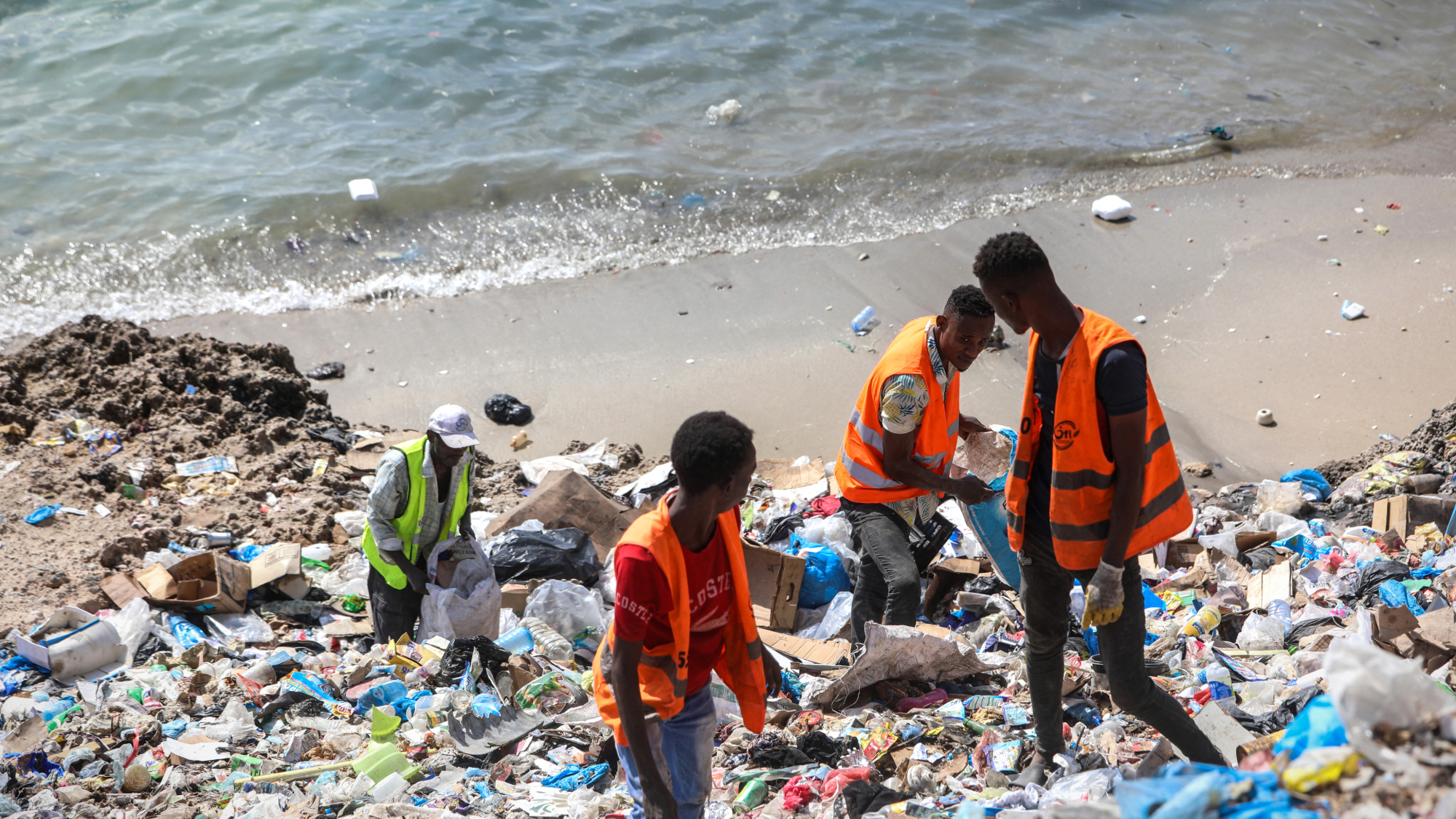Global plastics summit starts as COP29 ends
Negotiators gathering in South Korea seek an end to the world's plastic pollution crisis, though Trump's election may muddle the deal


A free daily email with the biggest news stories of the day – and the best features from TheWeek.com
You are now subscribed
Your newsletter sign-up was successful
What happened
The United Nations–sponsored COP29 climate talks ended in Baku, Azerbaijan, Sunday with approval of a deal to provide $300 billion a year to fight climate change, focused on helping poorer countries manage the rise in global temperatures. Negotiators gather Monday in Busan, South Korea, to work on hammering out a landmark deal to manage the world's plastics crisis.
Who said what
Delegates from 175 countries are in Busan for the "fifth and ostensibly final" meeting to curb plastic pollution, but "lingering divisions cast doubts on whether a final agreement is in sight," Reuters said. The European Union and 66 countries are looking for a treaty to cap and reduce the amount of plastic produced, and the U.S. "raised eyebrows in August" when it agreed to back those caps."
"Then came the election of Donald J. Trump," The New York Times said. Now "few expect the United States to sign on to an eventual treaty at all," with Trump siding with the petrochemical companies and other plastic-producing nations that oppose reducing output. Microplastics are already in drinking water, fish and animals, and even human organs, but plastics companies at the summit argue that the goal should be reducing waste through reuse and recycling.
The Week
Escape your echo chamber. Get the facts behind the news, plus analysis from multiple perspectives.

Sign up for The Week's Free Newsletters
From our morning news briefing to a weekly Good News Newsletter, get the best of The Week delivered directly to your inbox.
From our morning news briefing to a weekly Good News Newsletter, get the best of The Week delivered directly to your inbox.
COP29's final deal "rescued the summit from near collapse," but it left "just about everyone frustrated," Semafor said. Even the "disappointing" $300 billion number will be hard to turn from dollars in a ledger into "hard cash in the hands of the most climate-vulnerable countries."
What next?
Many developing countries, already "angered by the modest deal on climate crisis financing," argued that an "ambitious" plastics treaty with holdouts is "better than a watered-down one signed by all," the Times said. The Busan summit ends Saturday.
A free daily email with the biggest news stories of the day – and the best features from TheWeek.com
Peter has worked as a news and culture writer and editor at The Week since the site's launch in 2008. He covers politics, world affairs, religion and cultural currents. His journalism career began as a copy editor at a financial newswire and has included editorial positions at The New York Times Magazine, Facts on File, and Oregon State University.
-
 How the FCC’s ‘equal time’ rule works
How the FCC’s ‘equal time’ rule worksIn the Spotlight The law is at the heart of the Colbert-CBS conflict
-
 What is the endgame in the DHS shutdown?
What is the endgame in the DHS shutdown?Today’s Big Question Democrats want to rein in ICE’s immigration crackdown
-
 ‘Poor time management isn’t just an inconvenience’
‘Poor time management isn’t just an inconvenience’Instant Opinion Opinion, comment and editorials of the day
-
 The plan to wall off the ‘Doomsday’ glacier
The plan to wall off the ‘Doomsday’ glacierUnder the Radar Massive barrier could ‘slow the rate of ice loss’ from Thwaites Glacier, whose total collapse would have devastating consequences
-
 Can the UK take any more rain?
Can the UK take any more rain?Today’s Big Question An Atlantic jet stream is ‘stuck’ over British skies, leading to ‘biblical’ downpours and more than 40 consecutive days of rain in some areas
-
 As temperatures rise, US incomes fall
As temperatures rise, US incomes fallUnder the radar Elevated temperatures are capable of affecting the entire economy
-
 The world is entering an ‘era of water bankruptcy’
The world is entering an ‘era of water bankruptcy’The explainer Water might soon be more valuable than gold
-
 Climate change could lead to a reptile ‘sexpocalypse’
Climate change could lead to a reptile ‘sexpocalypse’Under the radar The gender gap has hit the animal kingdom
-
 The former largest iceberg is turning blue. It’s a bad sign.
The former largest iceberg is turning blue. It’s a bad sign.Under the radar It is quickly melting away
-
 How drones detected a deadly threat to Arctic whales
How drones detected a deadly threat to Arctic whalesUnder the radar Monitoring the sea in the air
-
 ‘Jumping genes’: how polar bears are rewiring their DNA to survive the warming Arctic
‘Jumping genes’: how polar bears are rewiring their DNA to survive the warming ArcticUnder the radar The species is adapting to warmer temperatures
